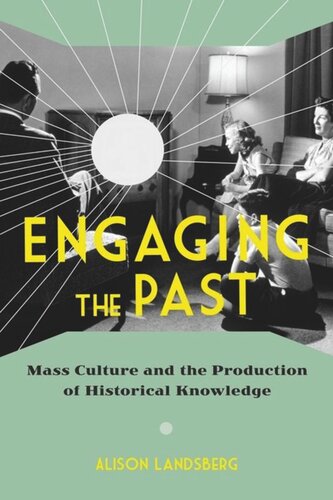

Most ebook files are in PDF format, so you can easily read them using various software such as Foxit Reader or directly on the Google Chrome browser.
Some ebook files are released by publishers in other formats such as .awz, .mobi, .epub, .fb2, etc. You may need to install specific software to read these formats on mobile/PC, such as Calibre.
Please read the tutorial at this link: https://ebookbell.com/faq
We offer FREE conversion to the popular formats you request; however, this may take some time. Therefore, right after payment, please email us, and we will try to provide the service as quickly as possible.
For some exceptional file formats or broken links (if any), please refrain from opening any disputes. Instead, email us first, and we will try to assist within a maximum of 6 hours.
EbookBell Team

4.0
36 reviewsReading films, television dramas, reality shows, and virtual exhibits, among other popular texts, Engaging the Past examines the making and meaning of history for everyday viewers. Alison Landsberg considers the films Hotel Rwanda (2004), Good Night and Good Luck (2005), and Milk (2008); the television dramas Deadwood, Mad Men, and Rome; the reality shows Colonial House, Frontier House, and Texas Ranch House; and The Secret Annex Online, accessed through the website for the Anne Frank House, and the Kristallnacht exhibit, featured on the Unites States Holocaust Museum website. These mass-cultural texts cultivate what Landsberg calls an "affective engagement" with the past, tying the viewer to an event or person and fostering a sense of intimacy that does more than simply transport the viewer back in time. Affect, she suggests, can also work to disorient viewers, forcibly pushing them out of the narrative and back into their own bodies. By analyzing these specific popular history formats, Landsberg shows how they provoke historical thinking and produce historical knowledge, prompting a reconsideration of what constitutes history and an understanding of how it works in the contemporary mediated public sphere.
Examines the making and meaning of history for everyday viewers